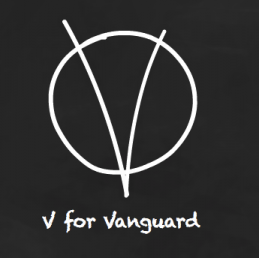It looks like Vanguard is no longer the undisputed consumer champion of old. Vanguard’s USP has been waning for a while but the recent announcement of a £4 per month minimum charge for DIY investment services has put the tin lid on it.
Previously, Vanguard’s DIY investors paid a 0.15% platform fee calculated on their account balance. That made Vanguard excellent value for beginners, young investors, and anyone who can’t afford to put much away.
But from 31 January 2025, customers will pay £48 annually for portfolios worth less than £32,000.
This is a huge change.
How Vanguard’s price rise affects small portfolio owners
Anyone with a £1,000 portfolio will pay £48 in charges or 4.8% of their account balance.
Previously they would have paid £1.50.
The numbers may not seem large until you consider that global equities post an average annual return of around 8%.
At that rate, most of the example investor’s return will be consumed by fees. Precisely the fate that Vanguard’s founder, John Bogle, worked to help people avoid.
As Vanguard itself says, quoting Bogle:
Investors need to understand not only the magic of compounding long-term returns, but the tyranny of compounding costs; costs that ultimately overwhelm that magic.
Very true. And while all brokers are grappling with their own rising costs, an informed investor surveying the options will find that several other platforms are now more competitive than Vanguard for small portfolios.
Costly consequences
Vanguard’s £48 minimum means the platform is now only worth considering once you’ve amassed at least £19,200 in an ISA / GIA or £13,700 in a SIPP. (See below for our alternative picks).
You can sense-check your own numbers using the method we’ve previously outlined: How to work out which platform is cheapest for you.
Do that and if your portfolio is worth well over £32,000 then you may be left wondering what all the fuss is about. You won’t see any fee hike at that level.
On the other hand…
Vanguard alternatives for small portfolios
Disclosure: Links to platforms may be affiliate links, where we may earn a small commission. It doesn’t affect the price you pay nor how we judge the brokers. This article is not personal financial advice. Your capital is at risk when you invest.
The best Vanguard alternative right now is InvestEngine. InvestEngine’s platform charges and dealing fees are precisely zero for all account types including SIPPs.
InvestEngine hasn’t previously enabled SIPP transfers. But it’s now making an exception for Vanguard customers.
If you’re wondering how InvestEngine can afford to offer its services for free, here’s its own explanation. But please read our zero commission broker article, too.
InvestEngine is covered by the standard £85,000 FSCS investor compensation scheme.
Unlike Vanguard, InvestEngine is an ETF-only platform. I don’t think that’s a barrier though as ETFs are now cheaper than funds for many asset classes. And InvestEngine offers plenty of options, including non-Vanguard providers.
Another zero-fee alternative is Prosper.
Prosper is every bit as cheap InvestEngine. Again, you can read its own explanation on how it makes money.
Prosper is an app-only investing service, offering a limited number of index funds and ETFs – though Vanguard products are prominent. The range may be small but it has the main asset classes covered, and typically includes a competitive index tracker in each category.
Prosper also includes a SIPP in its account line-up, alongside an ISA and GIA as usual.
The firm itself is relatively new. But it is protected by the FSCS scheme.
Cheapest Vanguard alternatives if you prefer better known brands
These options are worth considering because they couple free fund trading with a low percentage platform fee:
Close Brothers:
- Pros: 0.25% platform fee, zero dealing fee on funds.
- Cons: Expensive SIPP.
HSBC Global Investment Centre:
- Pros: 0.25% platform fee, zero dealing fee on funds.
- Cons: Restricted number of non-HSBC index funds. No SIPP.
Fidelity:
- Pros: Cheap SIPP so long as you invest monthly – 0.35% platform fee, zero dealing fee on funds.
- Cons: £90 minimum annual charge if you don’t invest monthly. Applies to accounts worth less than £25,000.
Santander Investment Hub
- Pros: Cheap SIPP – 0.35% platform fee, zero dealing fee on funds. The same price as Fidelity but no penalty for failing to invest every month.
- Cons: Bad Trustpilot reviews albeit from a limited pool.
Dodl by AJ Bell:
- Pros: Dodl by AJ Bell is cheaper than the rest except InvestEngine and Prosper – but only once your portfolio passes the £4,800 mark.
- Cons: Highly restricted fund and ETF list. £12 minimum annual account charge.
Any other contenders?
There are a few more zero commission trading apps available but they don’t occupy the same space as Vanguard. While such firms offer ETFs, they’re primarily focussed on trading and speculating on high-risk assets.
Still, you can check many of them out via our broker comparison table.
Transfer day
There aren’t any exit charges to pay if you’d like to transfer your account away from Vanguard.
Transferring is simple enough though it may take a few weeks.
If your new broker doesn’t offer a Vanguard product then your investment will be sold to cash and the money moved over instead.
Here’s Vanguard’s page on transferring out.
These pieces explain what to watch out for:
What a pity
This isn’t John Bogle’s Vanguard anymore.
A fee cut on its index funds is vanishingly rare these days. Over the past several years, the company focused more on adding higher-fee active funds to its roster. Now it’s squeezing small investors.
Under Bogle, Vanguard changed the face of the investment industry through its relentless pursuit of a simple proposition: If it’s good for our customers, it’s good for us.
In so doing, it forced its competitors to become more like Vanguard – to the benefit of millions of people.
Now though Vanguard is starting to look more like everyone else.
Take it steady,
The Accumulator

